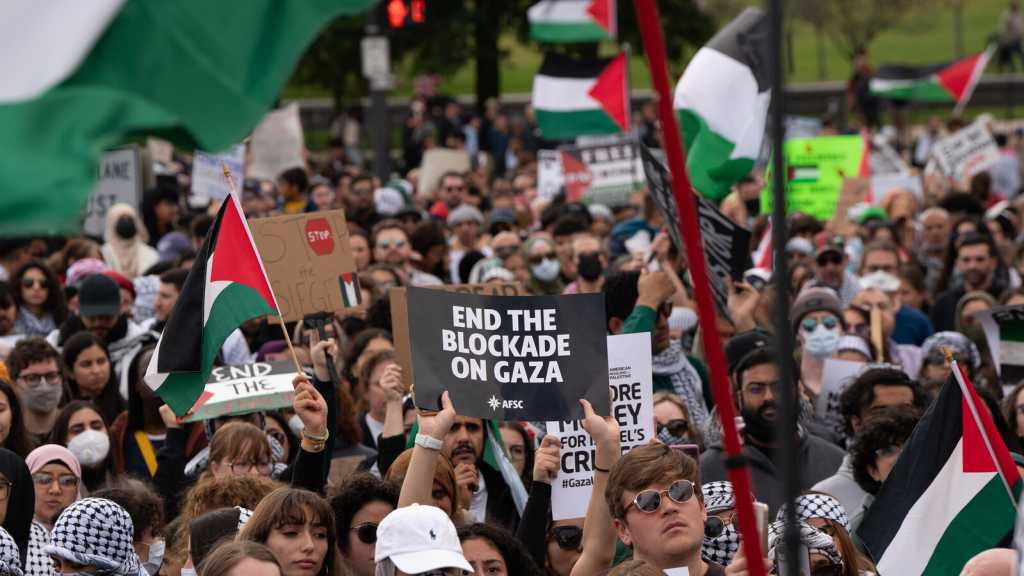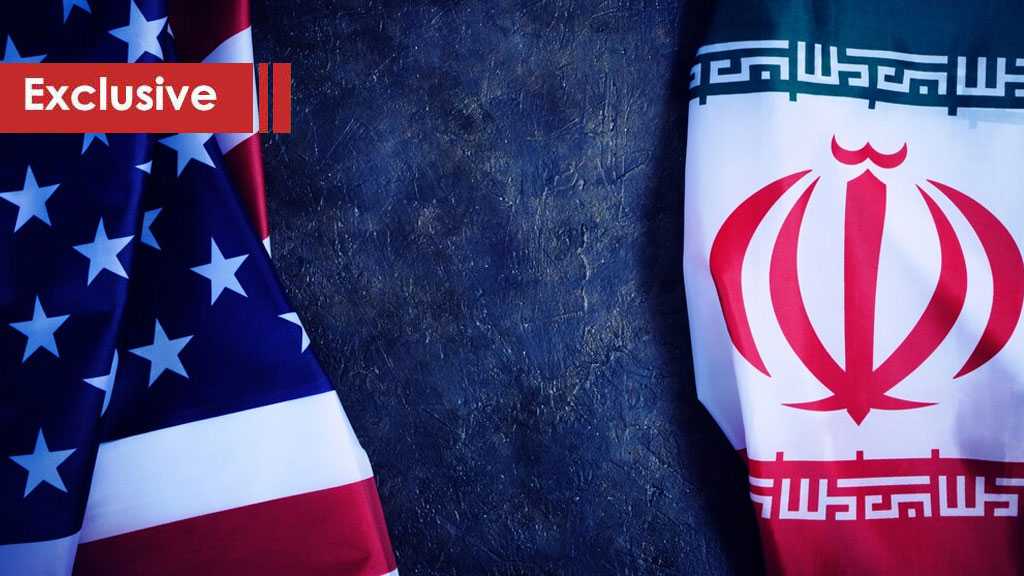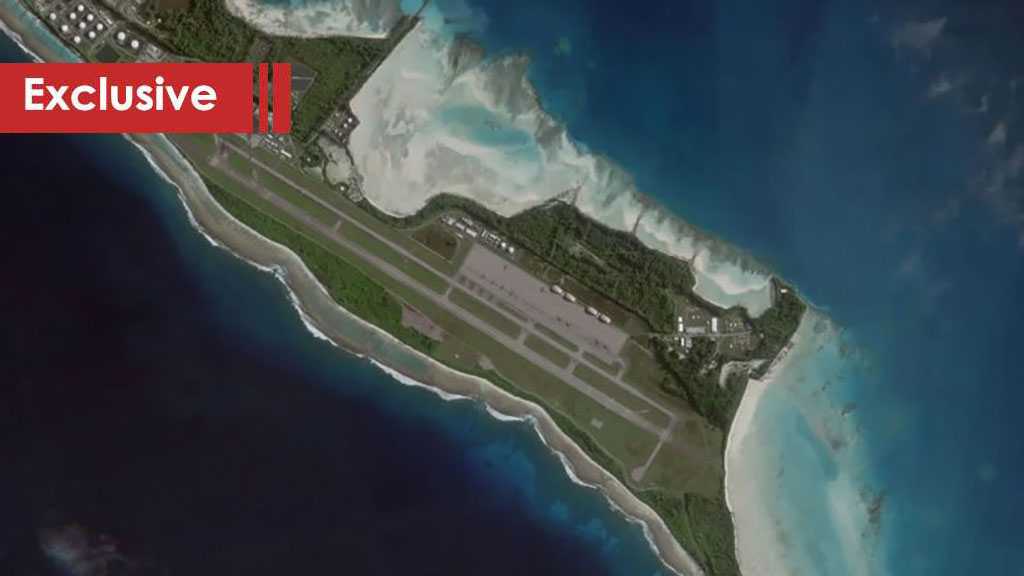Assad Must not Go...
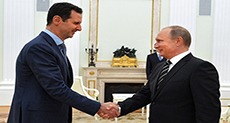
Darko Lazar
This week's ‘surprise' meeting between Bashar al-Assad and Vladimir Putin in Moscow puts everyone in their place.
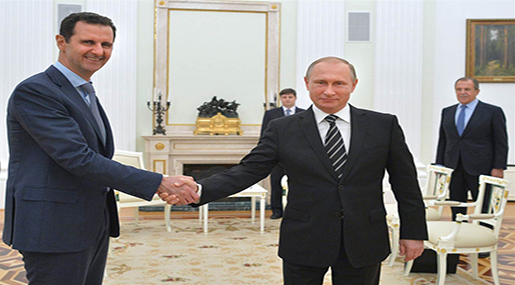
Washington and its allies have been humiliated since the start of Russia's military intervention in Syria, which has exposed their use of terrorism as a tool for attaining geopolitical goals. Assad's visit to Moscow was the cherry on top.
The sight of the Syrian president getting the ‘red carpet' treatment on his first official trip since the start of the crisis in his country in 2011 was a bitter pill to swallow for many western and Arab politicians, who had worked so tirelessly to oust him from power.
White House spokesman Eric Shultz said that, "We view the red carpet welcome for Assad... at odds with the stated goal by the Russians for a political transition in Syria."
Suffice to say, it may not quite be at odds with Russia's stated goals, but it most certainly is with the American ones.
On the surface, of course, Putin and Assad met to discuss their joint military campaign against terrorist groups in Syria, in the hope of maximizing its accuracy and efficiency. A successful military effort would then be followed by a push for a political solution aimed at ending the conflict in Syria.
But Bashar Al-Assad's trip to the Kremlin, which houses his main backers on the global stage - who deserve much of the credit for preventing a repeat of the Libya scenario in Syria back in 2012 and 2013, is a lot more than just a friendly chat between old allies.
The Russian bombardment of terrorist positions in Syria, which started last month, has proven to be extremely effective, altering the Syrian army's strategy from being on the defensive to going on the offensive. Assad's visit to Moscow strongly suggests that Russia's military intervention will lead to dramatic changes on the battlefield, in favor of the Damascus government.
Paris-based Political Commentator Gearoid O Colmain told me that the Syrian leader's visit to the Russian capital, "sends a cogent message to NATO: Moscow and Damascus have the upper hand in this war. The Russian military campaign has decimated Daesh. This has enabled major advances by the Syrian Arab Army and now more than ever before in this war, they have the real possibility of liberating the entire country."
The Russian strikes have also given rise to a military/intelligence alliance, including Syria, Iran, Lebanon's Hizbullah, as well as Iraq.
The warm handshake followed by hours of talks between the Russian and Syrian leaders signals that Bashar al-Assad is a key member of that anti-terrorist alliance and that his departure from power - demanded by the west and their Persian Gulf allies - has nothing to do with confronting terrorism.
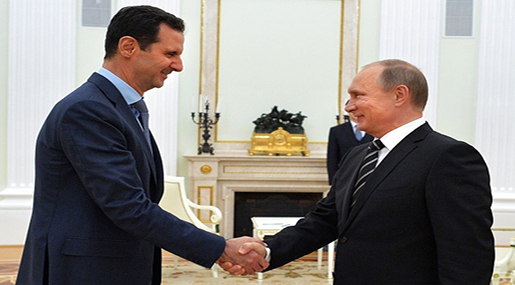
Speaking about Syria's political future after talks with his counterpart, Putin said that, "the decisive word, without any doubt, must belong solely to the Syrian people."
Syrian Political Activist Mimi Laham thinks that the meeting "shows that Putin has put his own name behind Assad and endorsed him."
And that's a problem for Assad's enemies. Aside from the election victory, which the ruling Baath party secured in 2014, by most accounts Bashar al-Assad is actually more popular today among the electorate than he was before the onset of the conflict.
Alaa Ibrahim is a Damascus-based journalist and he says that, "Assad's fate was decided by the Syrian people when he won the last election and he enjoys a huge mandate both inside the country and among a lot of Syrians abroad." Ibrahim adds that Assad, "still has a fair chance of being re-elected."
In other words the Syrian President is not going anywhere anytime soon.
While Washington continues to push the party line that a diplomatic solution to the Syrian conflict must be coupled with the departure of President Assad, their efforts to provide an alternative to his rule have failed miserably.
The foreign-based Syrian opposition has almost no support on the ground in Syria itself, and the so-called moderate armed groups that the US claims to support clearly do not exist. The Americans made those revelations themselves when their five hundred million dollar ‘Train and Equip' program ended up with a total of five fighters by September of this year.
Essentially the last few months have reaffirmed that a political solution to the conflict in Syria and the fight against terrorism are one and the same. Peace in Syria depends almost entirely on defeating terrorism - and little else.
"Whether we head toward a diplomatic solution will depend very much on whether the regional and foreign states that materially support the militant Syrian opposition will be foolish enough to continue doing so. But these states are increasingly reaping the negative consequences of their Syrian intervention, and so a political process provides all parties with an ‘exit' from this conflict. The meeting in Moscow underlined these new realities for the various adversaries" says Mideast geopolitical analyst Sharmine Narwani.
The Kremlin appears to have come to the realization that the reemergence of the Cold War is an existential battle and can only be won by confronting the US globally. In Syria the Americans and their allies will have to be convinced that the cost of the battle is simply too high to pursue further. The visit by the Syrian President to Moscow is a good sign that this strategy will soon bear fruit.
Source: al-Ahed News

